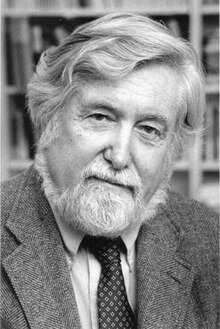Geertz, Clifford

Bio:(1926-2006). Clifford Geertz got his Ph.D. in anthropology from Harvard University in 1956. After a brief stint professor at the University of California at Berkeley Geertz started working at the University of Chicago in 1960, and in 1970 moved to Institute for Advanced Study at Princeton, where he retired in 2000. He conducted his first ethnographic fieldwork in Java in 1952-1954, and after that did fieldwork in Bali and Morocco.
In 1960, he published The Religion of Java, which was an edited version of his PhD thesis. In this book, Geertz uses the Weberian approach to religion to study the relationship between religious ideas and social and political changes in Indonesia. He distinguishes between three ideal types of religiosity in Java: syncretic religion in villages; orthodox Islam practiced by merchants; and ritualistic Hinduism practiced by the bureaucratic elite. In Islam Observed: Religious Development in Morocco and Indonesia (1968), Geertz, using the historical approach, describes how two distinct two types of Islam emerged in two countries. Islam in Morocco is focused on individual moralism and activism, while Islam in Indonesia Islam is characterized by the “dissolution of personality into a religious aesthetic”.
In Agricultural Involution (1956) Geertz explores the history of agriculture from 1619 to 1942. He presents a picture of two very different types of agriculture practiced in Indonesia. In outer Indonesia, small-scale slash-and-burn farming of tobacco, coffee, and rubber is practiced and it was in the process of modernizing. In Inner Indonesia intensive irrigation farming was practiced and it was undergoing a process of involution.
Geertz is most famous for the book, The Interpretation of Cultures (1973) which represented a collection of essays in symbolic interpretative anthropology. He rejects all universal theories used in anthropology, like Marxism, structuralism, structural-functionalism, and others. For him, anthropology isn't an experimental science that searches for laws, but it is an interpretive endeavor that searches for meaning. The goal of anthropology is to discover the conceptual structures that motivate the actions of the subject and to construct a system of analysis. The analysis is the classification of structures of meaning and the determination of their social basis and meaning. Geertz reinterpreted Weber’s concept of Verstehen as “webs of significance in which individuals are caught”, and those webs of significance are crucial for Geert’s understanding of culture. Meanings are not contained in some abstract symbolic systems, as Lévi-Strauss thought, but are found in the ‘ongoing patterns of life’, that is, in observable interactions, practices, and rituals. All those observable actions signify public symbolic knowledge that the researcher has to interpret that symbolic meaning through the method that Geertz calls „thick description“. The thick description focuses on the „emic“ significance of social action. For him every culture is unique and that should be presented to the reader, and in that sense, culture should be “read as a text”. That text should be understood in native, that is, emic cultural context, so the reader could learn and understand the local meaning.
In the essay on religion, which is part of the book The Interpretation of Cultures, Geertz, based on his research of symbolism and the ecstatic psychic state that people go through in religious rituals, comes to his definition of religion. Religion is “(1) a system of symbols which acts to (2) establish powerful, pervasive, and long-lasting moods and motivations in men by (3) formulating conceptions of a general order of existence and (4) clothing these conceptions with such an aura of factuality that (5) the moods and motivations seem uniquely realistic“.
In Works and Lives (1988), Geertz states that narrative strategies which anthropologists use to create thick descriptions and realism for readers are analogous to ‘realist’ fiction.
Fields of research
Agriculture Animism Anthropology Art Body Buddhism and Hinduism Bureaucracy Colonialism Communication Community Culture Economy Emotions History Identity Ideology Islam Knowledge Language Motivation Myth Nonverbal Communication Personality Psychology Religion Rural Science Sign and Symbol Socialization Subculture Taboo TribeTheoretical approaches
Symbolic (Interpretative) AnthropologyMain works
The Religion of Java (1960);
Agricultural Involution: The Process of Ecological Change in Indonesia (1963);
Peddlers and Princes: Social Change and Economic Modernization in Two Indonesian Towns (1963);
The Social History of an Indonesian Town (1965);
Islam Observed: Religious Development in Morocco and Indonesia (1968);
The Interpretation of Cultures (1973);
Negara: The Theatre State in Nineteenth Century Bali (1980);
Local Knowledge: Further Essays in Interpretive Anthropology (1983);
Works and Lives: The Anthropologist as Author (1988);
After the Fact: Two Countries, Four Decades, One Anthropologist (1995);
Available Light: Anthropological Reflections on Philosophical Topics (2000).

